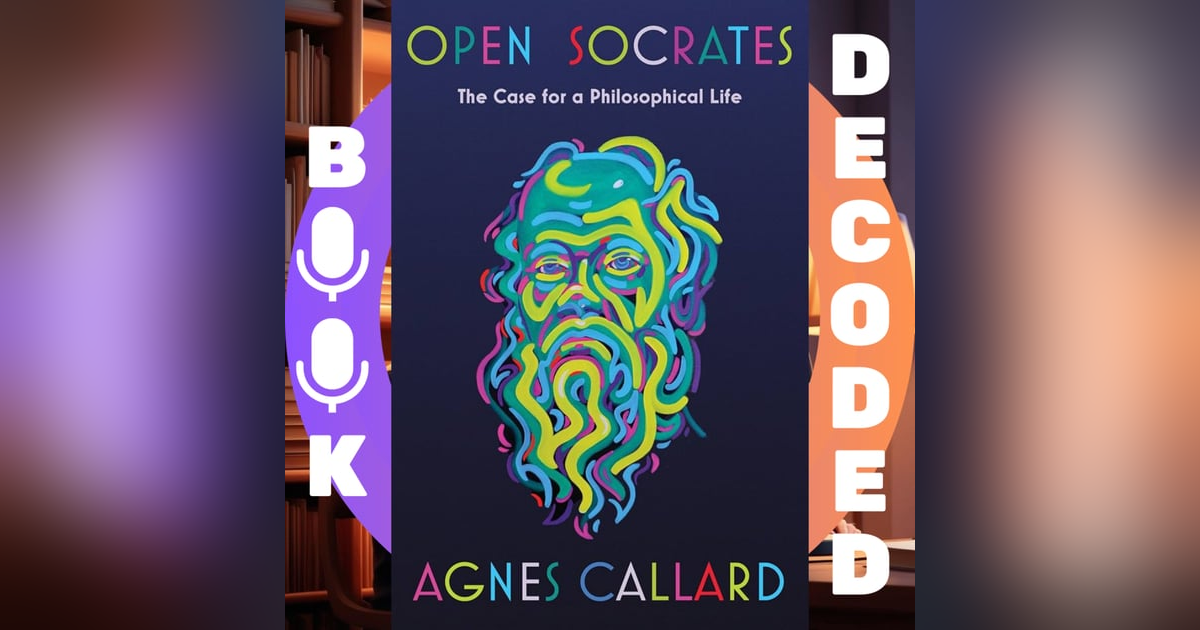"Open Socrates: The Case for a Philosophical Life" by Agnes Callard

Open Socrates: The Case for a Philosophical Life explores Agnes Callard's interpretation of Socrates' philosophy, primarily drawing from Plato's dialogues. Callard argues that Socrates' method involves questioning ingrained beliefs ("untimely questions") to achieve self-knowledge, contrasting this with the "savage commands" of bodily desires and kinship loyalties. She examines how philosophical inquiry addresses issues like akrasia (weakness of will) and revenge, ultimately advocating for a life guided by the pursuit of truth rather than adherence to pre-existing answers. The text contrasts Socrates' approach with later ethical theories like Kantianism and Utilitarianism, highlighting the challenges of reconciling competing values and the importance of collaborative inquiry. Finally, Callard uses Socrates' life and dialogues to explore themes of death, equality, and the nature of thinking itself.